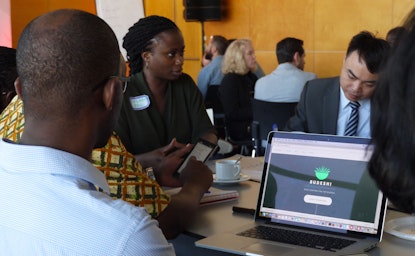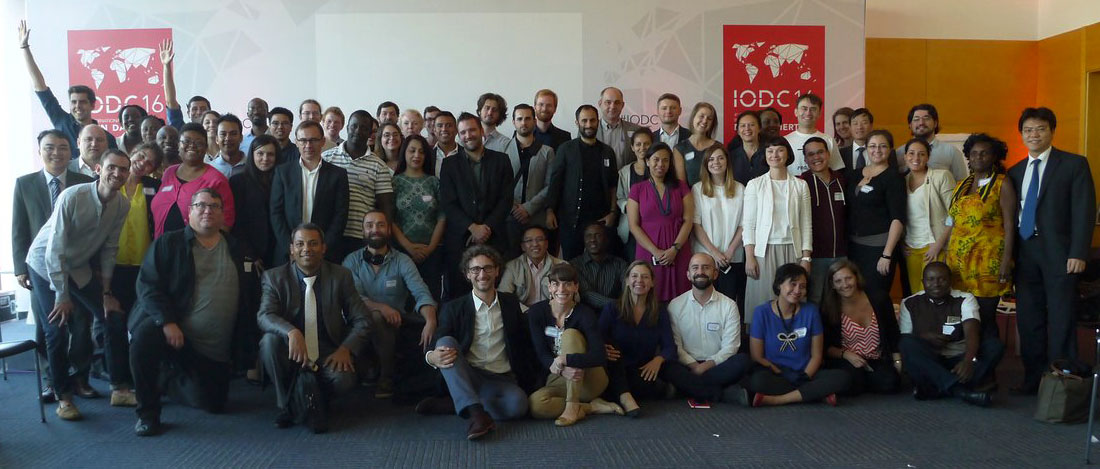Open Contracting at the IODC: From value for money to value for many

It ended with a storm. But a good one. Conversations on open contracting trended at the International Open Data Conference and we closed our pre-event day with a tweet storm that resonated throughout the conference: How should we use open contracting?
One of our favourite tweets came from Gilbert Sendugwa of the African Freedom of Information Center who put our aspiration so well: Let us use #opencontracting to enhance participation, value for money, and value for many #IODC16
Implementation of open contracting is actually happening. Big time. It is at the cutting edge of open data and connects to a broad range of fields like open cities, beneficial ownership, extractive industries, humanitarian emergencies and many others. So how do we turn this into value for many?
Here are a couple of things we’ve learnt in talking to everyone in Madrid and hearing both what is working and what isn’t. We’d love to hear your thoughts as well.
- Open contracting is a user driven conversation. We’ve brought a hardcore user audience to the IODC and hugely benefitted from that focus. It wasn’t a conversation about portals or data supply but one about user needs, demand and impact. Those work best, of course, when it is a multi-stakeholder conversation. The diverse group of people – from government (policy makers and public procurement agencies) civil society, civic technologists and open data organizations – helped drive rich and meaningful discussions. Talking about actual results with the people responsible was incredibly fruitful.
- The Open Contracting Data Standard helps build better tools. We’ve blogged about some great examples ahead of the conference. Open contracting and the Open Contracting Data Standard are tools that can be adjusted to individual user needs. We were able to discuss tools driven by the needs of the government (such as in Ukraine or Vietnam) and civil society (such as in Nigeria). There are also some first intelligent platforms for business to monitor and analyze contracts built using the standard. More excitingly, we are starting to see conversations between countries interested in adapting existing tools to their context.
- How to make sure open contracting data and interactions feed back into decisions? This will be a key question as we implement tools, publish open contracting data and explore paths of engagement. While driven by user needs, the effectiveness of platforms will rest on the ability of users to give feedback and have that feedback taken into account. We will need to make sure to explore ways to make pragmatic use of data, using feedback for creating greater value for money, ensure oversight and accountability, and develop a level-playing field for business. The Public-Private Development Centre in Nigeria has been able to use improved procurement data to engage constructively with the Universal Basic Education Commission in Nigeria. This is the kind of example that we hope will appear more systematically.
- The strength of open contracting is its active community. And this is true both for the actual work of publishing open government contracting data, but also the development and governance of the Open Contracting Data Standard itself (here are the issues currently discussed in a presentation and on Github). A big shout out to our awesome helpdesk team here as well.
So, despite the enthusiasm by many of us, work to identify actionable ways how users can engage with the data is only just beginning. This means going far beyond visualizations, which are of course essential tools to communicating and understanding the data, to merging online and offline ways to follow the money from public contracting. And we think about ensuring long-term impact on how decisions are being made that benefit everyone, not just the select few.
These are the questions that we need to have a response for when we come together again in Argentina in 2018. If Spain was all about tapas, in Argentina we will have to get to the meat of how open contracting changes the world.
